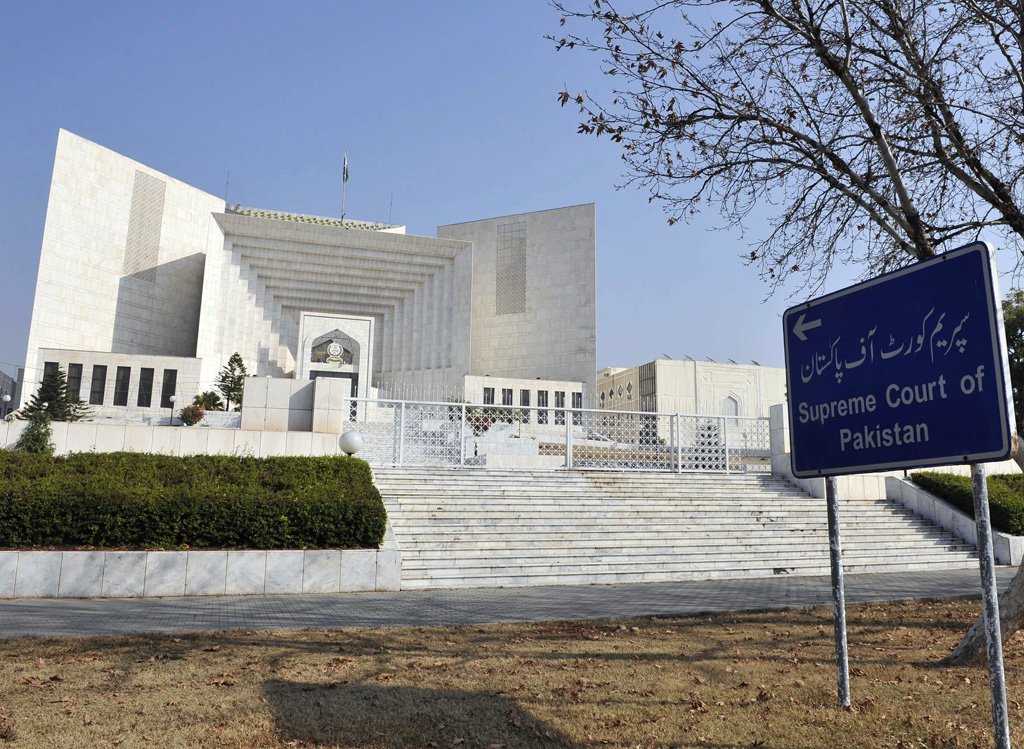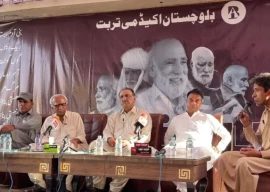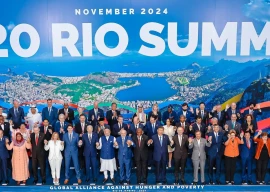
It directed the government to ensure in a week the provision of an office and other facilities to a commission formed for minorities’ rights and protection.
A two-member bench comprising Justice Faisal Arab and Justice Ijazul Ahsan was hearing a case pertaining to the rights of religious minorities.
The additional attorney general told the court that a 2,500 square feet space in the Evacuee Trust building would be provided to the commission.
MNA Ramesh Kumar Vankwani told the court that the matter had been brought to the notice of the prime minister.
Shoaib Suddle, the chairman of the commission on minorities’ rights and protection, said the national council would also be formed in accordance with the court’s 2014 verdict. Later, the hearing was adjourned for two months.
GIDC
The Supreme Court was informed that the Gas Infrastructure Development Cess (GIDC), which the government has been collecting for nearly 10 years, was imposed in violation of the law.
A three-member bench, headed by Justice Mushir Alam and also comprising Justice Faisal Arab and Justice Mansoor Ali Shah, was hearing petitions and application filed by various companies against the GIDC.
The Gas Infrastructure Development Cess (GIDC) Act, 2015 was enacted on May 21, 2015.
Lawyer Anwar Kamal argued that the GIDC was illegal and unconstitutional. Justice Shah inquired if the matter was discussed in parliament before it was passed into law.
The lawyer responded that the issue was discussed in parliament to build a consensus on it but the Khyber-Pakhtunkhwa and Sindh faced a bigger gas problem than Punjab.
Justice Arab noted that projects had an effect across the country.
The lawyer told the court that the high courts of the four provinces had announced different decisions on the matter. The high courts of Islamabad, Peshawar and Sindh had issued stay orders on the petitions while the Lahore High Court had not.
Rashid Anwar, a counsel for a private company, said the purpose of these projects was to provide an uninterrupted gas supply.
“Uninterrupted gas supply is possible now because of liquefied natural gas,” he added.
The hearing was adjourned till Thursday (today).
‘Missing plane’
The PIA has informed the apex court that its plane, which had allegedly went missing, was actually sold.
It added that the aircraft had completed its lifespan in 2016 and sent to Germany with the Civil Aviation Authority’s permission.
The airline further told the court in its written reply that the plane was also used for a film shooting for which the PIA was paid 210,000 euros.
The plane was sold for $103,000, it added.
The PIA also stated that the National Accountability Bureau and the Federal Investigation Agency were investigating the matter and its administration was cooperating with them.
(With additional input from APP.)

















COMMENTS
Comments are moderated and generally will be posted if they are on-topic and not abusive.
For more information, please see our Comments FAQ